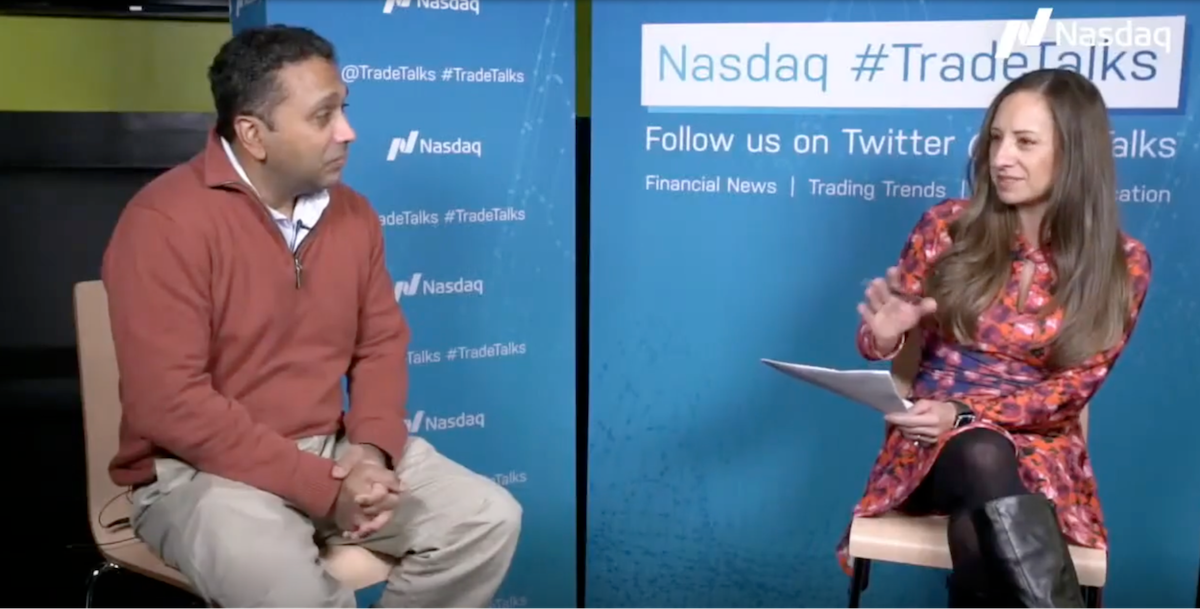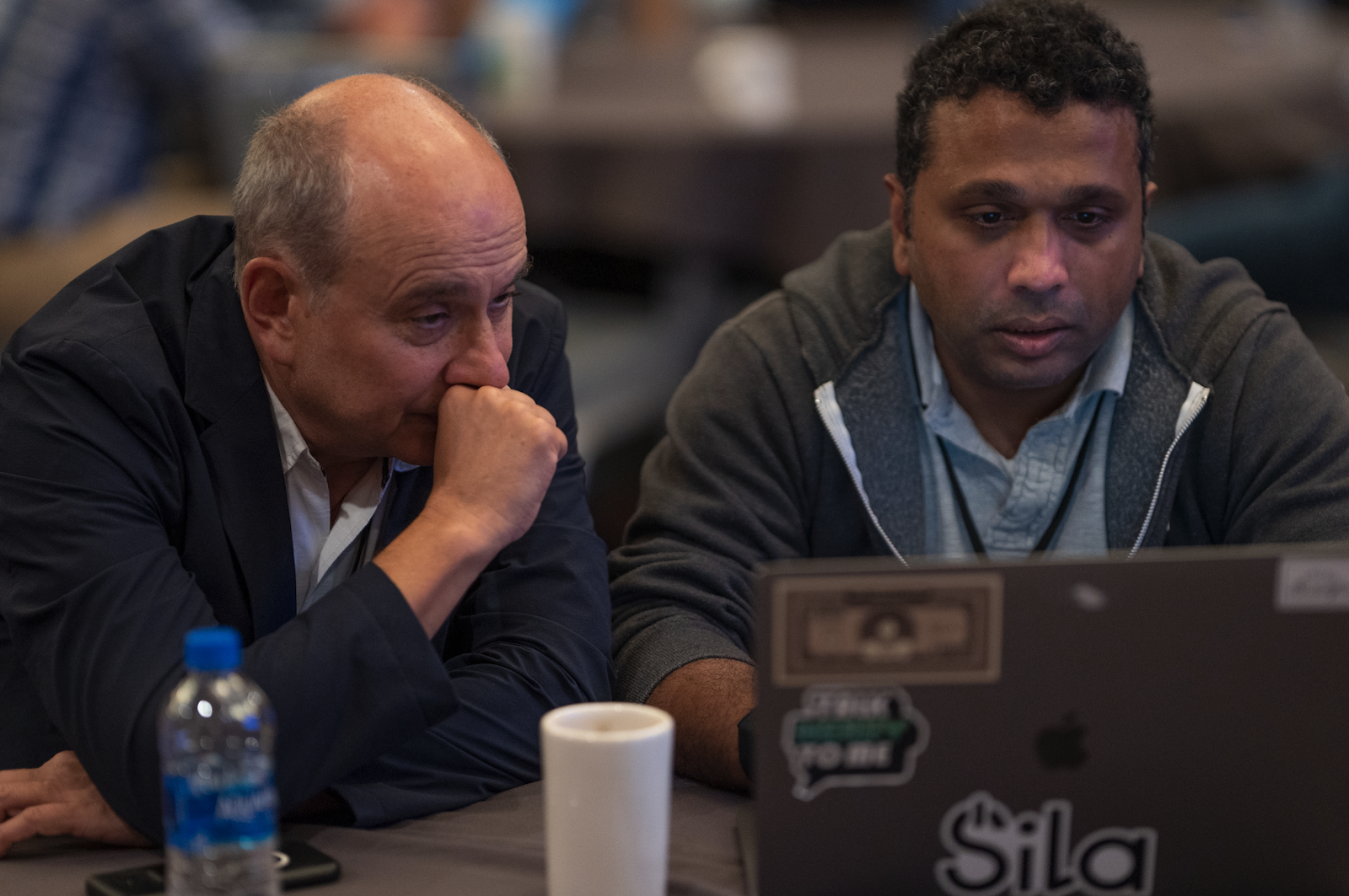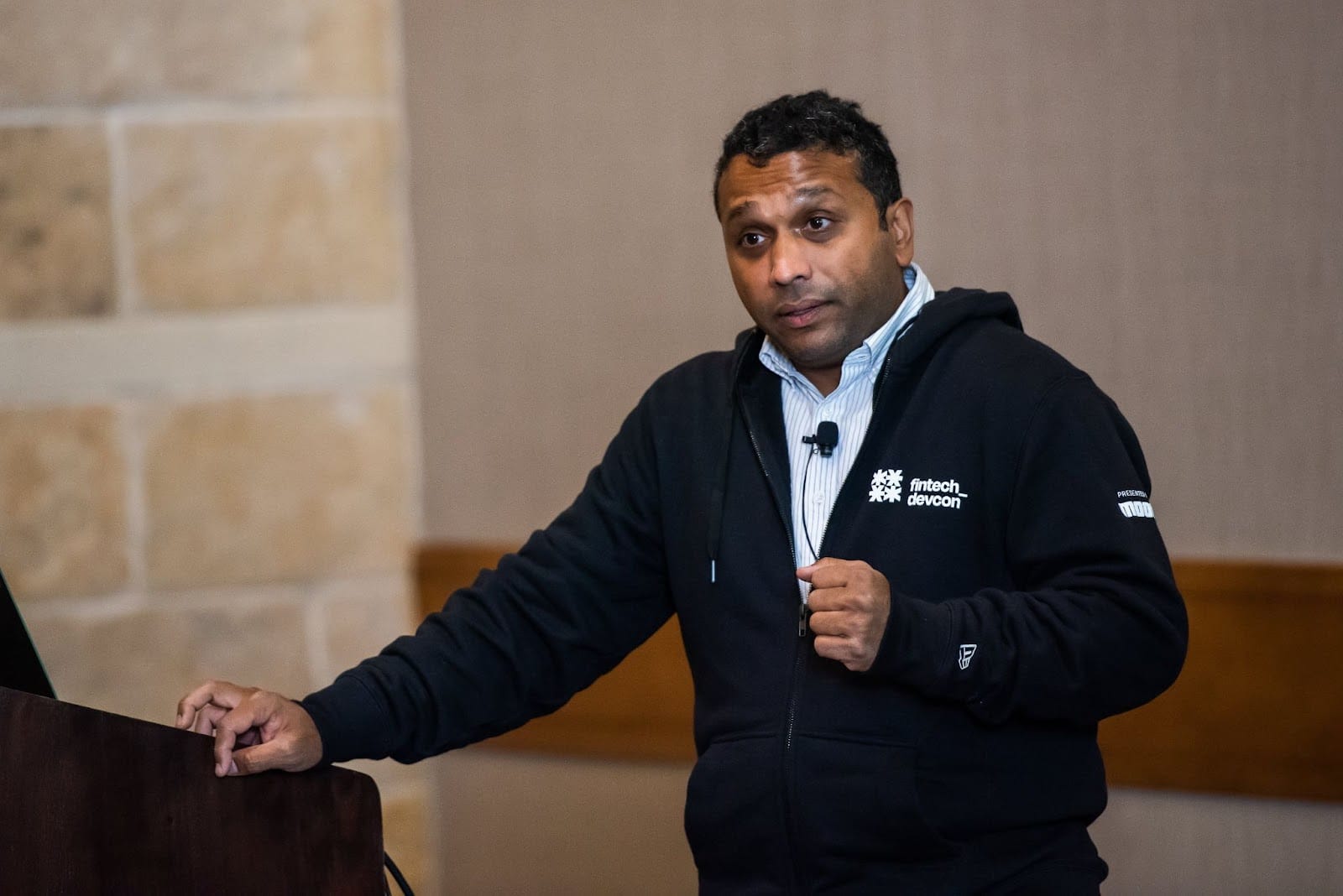How Sila is Helping Build a New Financial World for Giving
Shamir Karkal, co-founder and CEO of Sila, joins for the latest Stronger Together feature. Explore how Sila got started, projects in the works, and how Sila and bunny.money work together to enable fee-free donations.

For this month’s Stronger Together feature, we’re joined by Shamir Karkal, the co-founder and CEO of Sila. Shamir founded Sila in 2018 to solve a problem he'd experienced in the fintech industry: Every piece of payment infrastructure had to be assembled again and again, which took too long and was too expensive for most startups. Sila’s technology supports our bunny.money platform, helping us to enable zero-fee donations for non-profit organizations across the globe.
Today, Shamir Karkal joins us to discuss Sila’s mission, current projects, and future outlook. If you’d prefer to listen to our conversation with Shamir, you can check out our Stronger Together podcast episode.
How did Sila get started and what are your goals?

My first fintech company, Simple.com, was acquired by BBVA in 2014. I then heard about the opportunity to build API platforms at BBVA. My first reaction was that the world needed APIs in banking. In the three years it took my co-founder Josh and I to build Simple and get to customer one, I realized if a platform like this existed, we would have been able to launch in just six months, enabling us to enact more change in the world.
I got excited about the mission and helped BBVA launch two API platforms — one in Spain and one in the US. We built and launched those platforms, which were quite revolutionary. You could integrate into the sandbox in a few days, then launch in a few months. There were many other hurdles, like compliance, that anyone operating an app had to navigate. I had to say no to 95% of my potential customers because pre-seed and seed startups had to get up and running in a few months — our process at BBVA was taking too long for them. I got frustrated by that because it wasn't my vision.
I decided I still wanted to solve that problem and make it easy for one person in their business to build and launch a bank by themselves. We need a platform to enable that. That’s why I started Sila.
Sila's mission is to make it easy to program and innovate with money. Eventually, we want to do that across the world, but right now we're in the US. The core of our product is an API platform that enables our partners, such as bunny.money, to onboard their customers — individuals or businesses — and verify their ID. We try to embed onboarding directly into our processes. With our platform, we create digital wallets and can pull money into them via ACH. At the end of it, you can pay somebody else out. Storage of money is as intrinsic of a capability as transferring the money. You have everything you need to build and launch your app within a couple of weeks.
Speaking about bank transactions, we expect them to be instantaneous, but we often see it takes a few days to settle. Why is that?
yepBank transactions in the US take a few days, but it is instantaneous in many other parts of the world — Europe, India, and many parts of Africa. It all comes down to default payment systems. In the US, the default system is ACH, which was originally built in the 70s. The technology and the whole system was built pre-internet. The way it works is designed for a world where people would put tape drives into a truck, drive them to a location to read the data and drive them back. It's a heavily outdated system, but it processes $70 trillion annually.
Credit card transactions over the network can clear in real time but they don’t work for everyone. All the common retail payment systems in the US — cards, ACH, are all over 20 years old. They tend to be expensive — if you're still using the tech of the 1970s, you pay the costs of the 1970s. Technology today is much cheaper, but you have to use ACH. Most banks operating today are still operating on a platform from the 70s. It's a massive and complex system that's beginning to change at the edges but hasn't changed much at the core.
The big hope is that the Federal Reserve is building a new payment system that will bring the first taste of real-time payments to the US. From the bank's perspective, if it takes a day or six over the long weekend, they're not going bankrupt. Their offices are probably closed anyway. If you run out of money, they get to charge you a fee. They not only don't have an incentive not to improve it, they truly lack a reason to change the existing system. It costs a lot to upgrade those systems - if you're transferring $70 trillion annually, that breaks down to millions each day. Banks would end up getting less money from real-time payments.
Can we expect that to change in the future?

I think it's already beginning to change and it's hard to predict what it will look like. Change itself is inevitable. "Nothing can stop an idea whose time has come."
Do you want a postal system or do you want to send emails? In the financial world, we're still stuck with payment systems like the post office that are now dated. The only question is when new systems will come to the US, and how.
Each system is specialized with different use cases. Same with ACH and Wires. They exist for different reasons. Each of these systems find use cases and niches. The whole system will become much more complex, but more functional for end-users. Nobody wants another bank account, they want an app to solve another problem in their life. If that app is money storage and investments, that's great. It's really the app experience and the problem it's solving.
We find wallets everywhere (from carpooling apps, food delivery apps, and even credit score apps…) Is the Checking account dead? What’s your vision for payments and wallets in the future?
I think the universal bank is on its way out. I'm not sure it was ever really there. Even twenty years ago, did people really go to one bank and ask for a mortgage because their checking account was there? All the data shows banks are awful at cross-selling. Just because you have a checking account doesn't mean you'll have a mortgage.
I think everything is going to shift to be really focused on experiences. You don't want a mortgage; you want to buy a house. These experiences are going to get optimized to work for you, not the bank.
There will still be stores of money that you personally focus on; your core spending money you have an idea of and how much is in there. Perhaps you have a crypto wallet as well to track holdings and investments. The rest will be capabilities that come embedded into products. It has a wallet built-in, but you use it to solve a particular use case. You don't care exactly how that works.
bunny.money wants to be the Donation wallet and facilitate ‘giving’ without fees to the Nonprofits. What do you think of that goal? How does Sila help bunny.money build that future?
I'm a big fan of the whole concept, of bunny.money, and the team. We've known them for a while now and it's been a pleasure watching them launch. Of course, there's been a pandemic in the middle of all of this and it hasn't gotten easier — if it was ever easy. The problem itself has gotten huge.
There's so much wealth that has been built during the pandemic. At the same time, you have many people who weren't doing well before and haven't recovered since. Many people want to give to charity, and there are many charities doing great things in the world. The broken payments system is especially bad in the world of charities. The money-minded sharks go to work for Wall Street, not for charities. Charitable giving seems to be a few steps behind the regular world, which is already bad. Seeing the infrastructure for the world of charitable giving being upgraded is great.
We power the bunny.money payments and compliance platform. The core underlying payment systems and the compliance aspect around it is all handled by us. bunny.money uses us to onboard individuals, help them accumulate money, then transfer to a charity of some sort. Exactly when, how, and how much is for the users to determine, but we provide the tools for them to do that.
What’s your vision for crypto and crypto donations?
I feel like we're at the start of a massive wave of innovation in fintech and crypto. The differences between the two are blurring now. A decade from now, things will be very different. Many things you view now as highly unusual, will be common ground. Like smartphones that a decade ago were limited and now are everywhere. Similarly, Fintech is maybe 1% of global financial services now, but in a decade, it could be closer to 10% or more. There will be a massive shift in how everyone understands digital payments.
Help Nonprofit Organizations with Zero Fees
Thanks to the support of Sila, you can use bunny.money to donate to your favorite nonprofits with 0% fees. None for you and none for the organization of your choice — they’ll receive 100% of your donation to support their members. For a limited time, register for bunny.money and you’ll be entered to win money to donate to a charity of your choice.

